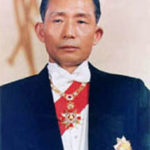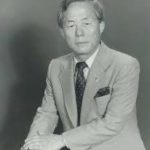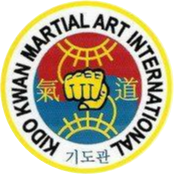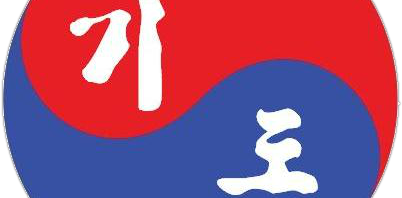THE GENERALS, A Study of Taekwondo History Part 1

Taekwon-Do history has been talked about and written about many times over; sometimes you will read that it is over two thousand years old or that it was formed by a committee or others altogether. While it’s true that we can say no one person formed or created Taekwon-Do, we can say that only a few strong-willed men did, and it is about a couple of them that I will discuss here.
Much has been written about many of the movers and shakers of Taekwon-Do histories. This article will discuss two Korean figures that played a huge role in the international aspects of Taekwon-Do and the development of Korea in the 20th Century.

Many know of General Choi, Hong-hi a principal founder of Taekwon-Do and the International Taekwon-Do Federation®. Some history buffs and Koreans also, know of General and – later President Park, Chung-Hee, the 3rd President of the Republic of South Korea.
So what do these two Koreans have in common? Simply put they are ardent Korean Patriots. Both were South Korean Army Generals, both were born during the Japanese occupation of Korea and both used Taekwon-Do as a tool to spread Korean principles, ideas, customs, and power.
Many will also note in General Choi’s autobiography “Taekwon-Do and I” that he disliked General Park, and that General Park held animosity toward General Choi. The issue or question is why? The answer is…that they were both cut from the “same cloth.”
General Choi was born in the far north of a “unified” but Japanese-controlled Korea (yang), while General Park was born in the far south of a unified but Japanese-controlled Korea (yin).
Choi was born in November 1918 in the Chinese zodiac year of the Horse (yang), while Park was born in September 1917 in the Chinese Zodiac year of the Snake (yin). According to their zodiac signs, a lot can be said about both men. Choi was known to be very stubborn like the horse, and Park very sly like the snake.
The Yin and Yang comparison is very appropriate. A lot of people believe that Ying and Yang mean positive and negative, a very simplistic view of the philosophy. It is more like “shadow and light.” You can’t have a shadow without light. You need both light and shadow to define the effect and identify each. Much like the expression, “You can’t have a rainbow without first having the rain.”
Much has been written about both Gen. Park and Gen. Choi, however, I’ll revisit both gentlemen’s early years. Park, Chung-hee was born on September 30, 1917. This was twelve years after the start of the Japanese rule of Korea: (at this time there was no North or South Korea, but one “unified” Korea.) The era in which Park and Choi lived is hard for us to imagine. They shared some common experiences but also had some very different ones.
Park’s father, Park, Song-bin, was involved in the Tonghak Peasant Movement (동학농민운동) which started in February 1894. This “peasant revolution” which was focused in the south of Korea (Gobu) was against the Choson government and protested the political corruption of the local city and county governments.
It was this act of defiance against his government that caused Park, Song-bin to be punished, by that government after the Japanese intervention. This is because the Choson government requested Chinese help. That act started the first Sino-Japanese war which then led to the eventual occupation of Korea by Japanese forces.
The first part of the uprising was focused on the Choson government; but, by late 1897 with a new government establishing the Korean Empire with some demands met by the Tonghak, the leaders of the movement offended the Japanese-controlled Korean Empire. The main leaders of the movement were executed. Others, such as Park, and Song-bin, were arrested and only by sheer luck survived. Survive; however, is about all Park, and Song-bin did after being caught. The Park clan that he belonged to were of the Yangban class of the Choson Dynasty. This was a privileged class that was exempt from certain taxes and duties. A member of the Yangban joining forces with those in a lower class structure would be and was looked down upon. Park, Son-bin’s father was furious because it jeopardized the whole clan and exiled him to his wife’s hometown. They barely eked out a living on a highland plot of land that earned no income. Surviving was all that he and his family could do.
By the time Park, Chung-hee was born, his family had suffered greatly at the hands of the Choson and Korean governments. The outlook that Park, Song-bin had for his government was not positive. Like many in his situation, he looked upon the Japanese occupation as no worse than, and at times better than, the way his people treated him. It was in this kind of environment that Park, Chung-hee grew up. By the time he reached school age, more than a decade of Japanese rule and changes had occurred. He knew nothing else, Park was raised as a citizen of the Japanese Empire, so he didn’t view them as occupiers as did some of the previous generations.
By the time Park reached his teenage school years (roughly 1930-1933), the school systems had changed to following those of mainland Japan. The curriculum included more military “martial” subjects, such as Kendo, weapons tactics, dry and live firing of small infantry weapons, and bayonet training. Young Park thrived on these subjects along with the study of Japanese and Japanese History. He stated early on to classmates that he wanted to become an army general: and the only army he had ever known or seen was the Japanese Army, not a Korean Army.
Park took the Japanese name Takagi Masao (高木正雄) and in 1941 he volunteered for the Manchukuo Imperial Army which was under the puppet state of the Manchukuo (Manchuria) Government of the Japanese Empire. He entered the ChangChun Military Academy and graduated at the top of his class in 1942. He then received training at the Japanese Imperial Military Academy near Tokyo before being posted back in Manchuria and served there until Japan’s surrender at the end of World War II.
NOTES: Choi, Hong-hi (최홍희 / 崔泓熙 )was known as “ChangHon창헌” Choi always thought of being those “among the Blue House and Park, Chung-hee (박정희/ 朴正熙 ) known as “ChungSu중수” always considered himself “Among the Trees.
![]()


Average Rating